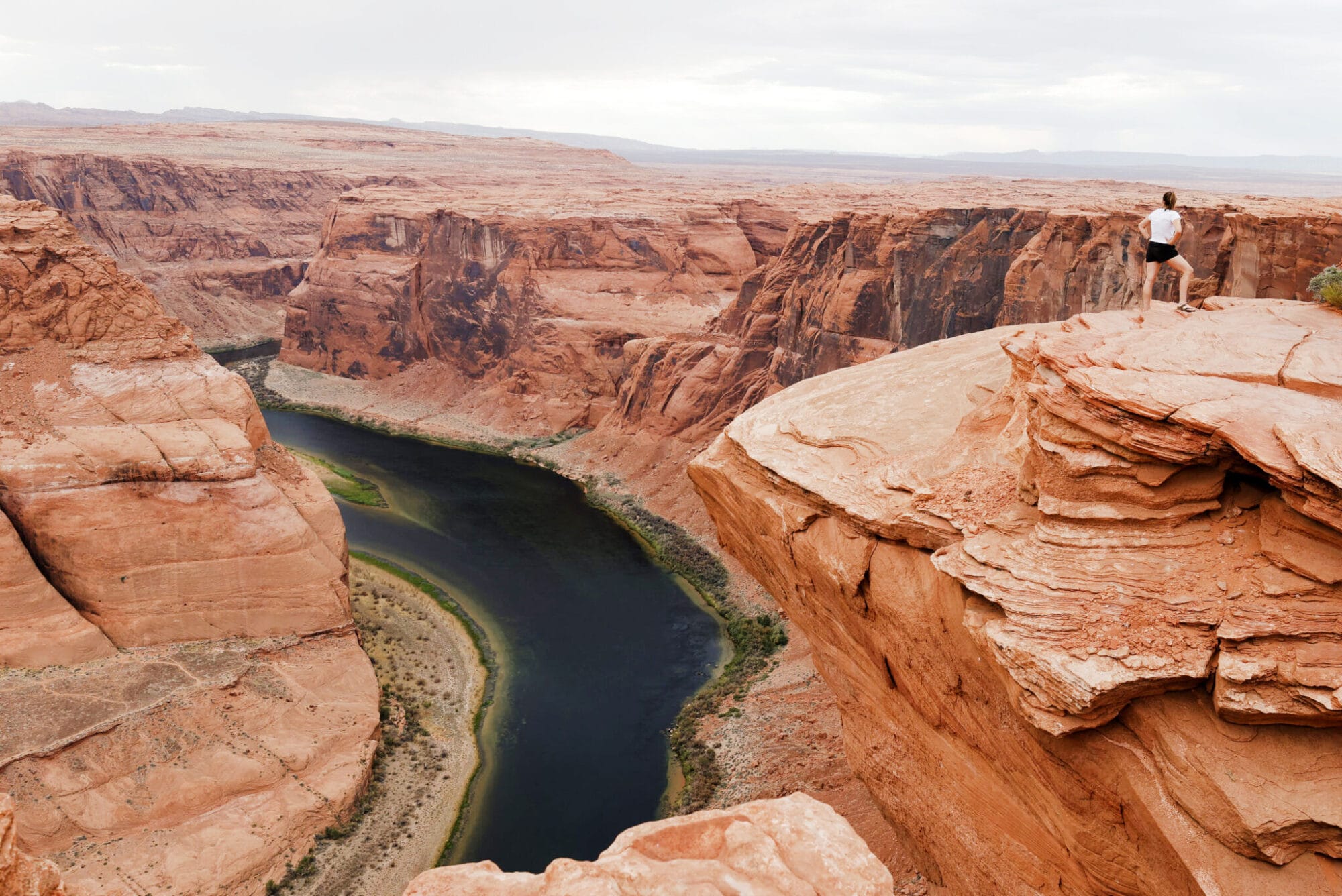The Colorado River as it flows around Horseshoe Bend on June 23, 2021 in Page. The Bureau of Reclamation says it will unilaterally reduce water usage in the Colorado River Basin if state and tribal leaders can’t reach an agreement this summer. /Photo by Justin Sullivan /Getty Images
BY: JENNIFER SHUTT / Arizona Mirror
WASHINGTON — The federal agency in charge of managing much of the West’s water warned Tuesday that it will act unilaterally to reduce water usage in the Colorado River Basin if state and tribal leaders can’t reach an agreement this summer.
Bureau of Reclamation Commissioner Camille C. Touton told a U.S. Senate committee that states within the region will need to cut usage between 2 and 4 million acre feet in 2023 to protect the Lake Mead and Lake Powell reservoirs.
For now, Touton said, the bureau is “pursuing a path of partnership,” though she noted the agency has the authority “to act unilaterally to protect the system.”
“There is so much to this that is unprecedented and that is true. But unprecedented is now the reality and the normal in which Reclamation must manage our systems,” she testified. “A warmer, drier West is what we are seeing today.”
Touton said the Bureau of Reclamation is currently prioritizing short-term actions to prevent Lakes Mead and Powell from reaching dead pool, a condition where water levels get so low they can’t flow past a dam.
“This is the priority for us, between the next 60 days to figure out a plan to close that gap,” she said.
The Colorado River Basin covers more than 250,000 square miles and provides water to Arizona, California, Colorado, Nevada, New Mexico, Utah and Wyoming.
Extreme drought
The hearing in front of the U.S. Senate Energy and Natural Resources Committee gathered together officials from the Environmental Defense Fund, the Family Farm Alliance and the Southern Nevada Water Authority to look at short- and long-term solutions for extreme drought.
John J. Entsminger, general manager of the Southern Nevada Water Authority, told panel members that while the situation is bleak, it’s not unsolvable.
“I can assure you from on the ground that the ominous tenor of recent media reports is warranted,” Entsminger said. “What has been a slow motion train wreck for 20 years is accelerating and the moment of reckoning is near.”
The solution, he said, is working toward “a degree of demand management previously considered unattainable.”
Entsminger pointed to his home state of Nevada as an example for others in the region to follow, noting that while the state’s population has increased by 800,000 people during the last two decades, its water consumption dropped by 26%.
The state, which gets 1.8% of the Colorado River Basin’s water allocation, has paid residents to remove grass, set a mandatory irrigation schedule and enforced water waste rules.
He said that long-term solutions cannot just focus on residential and urban water use, but must include changes to how farms operate in the region.
Eighty percent of the Colorado River’s water allocation is used for agriculture and 80% of that is used for forage crops like alfalfa, Entsminger testified.
“I’m not suggesting that farmers stop farming. But rather that they carefully consider crop selection and make the investments needed to optimize irrigation efficiency,” he said.








